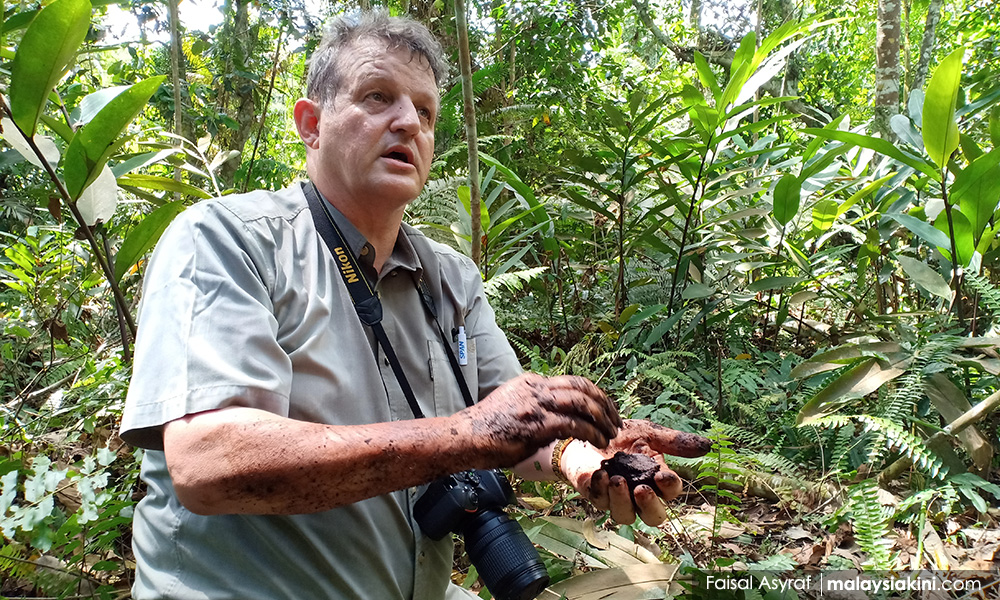Kedah Menteri Besar Muhammad Sanusi Md Nor's plan to control the flow of Sungai Muda which he claimed may leave Penang with "muddy waters" could backfire, warns an environmental group.
The Global Environment Centre (GEC) said instead of water running dry at the lower end of Sungai Muda, seawater could start flowing inwards, threatening agricultural crops in both Kedah and Penang.
Sungai Muda's source begins in Kedah but runs on the border with Penang towards the tail end, where Penang draws water from before it flows into the Straits of Malacca.
"The lower Muda river will not go dry but instead will draw in seawater leading to salinisation of groundwater and loss of agricultural crops in both states," said GEC director Faizal Parish.
Sanusi plans to build multiple barrages along Sungai Muda to control its flow under a project called Takungan Air Pinggiran Sungai (Taps).
Taps is needed to ensure Kedah's water supply during the dry season but Sanusi has also used the project to taunt Penang as the state has continuously snubbed his demand to pay water charges.
He had suggested that the lower part of Sungai Muda could become shallow, leaving the water in that section muddy.

Penang has maintained that it is within the state's riparian rights to draw water from the part of Sungai Muda that resides on its side of the border.
Faizal cautioned that the project will have various consequences.
“The multiple proposed barrages under the Taps scheme will disrupt the ecology of the river system, destroy the ecology and fisheries and induce serious problems of siltation.
"With no protection of the catchment, the barrages will quickly silt up leading to flooding problems and further disrupt the flow," he said.
Faizal added that Kedah and Penang have legitimate rights and concerns to ensure water supply for their states.
"What is needed is a comprehensive solution to solve the problems of both states for the long term rather than a short-term grab for resources by one party.
"Both states should opt for sustainable management of the river through an Integrated River Basin Management approach and take responsibility to plan for and protect the whole river basin and the catchment areas as well as managing current and future water demand within the capacity of the river basin," he said.
Faizal urged both states to also focus on enhancing the efficiency of water usage.
"The heavy use of water for the industry in Penang should be reduced by re-use and recycling, while domestic consumers should also not waste water resources.
"In Kedah, the main use of water is for agriculture – especially the Muda Agriculture Development Authority irrigation scheme," he added.

According to Faizal, the current rice cultivation technique is using water inefficiently and the supply is not sustainable in the long term.
"New techniques such as the System of Rice Intensification production can boost yields while significantly saving water.
"Kedah should also reduce its non-revenue water rate (47 percent) which signifies water wasted through pipe leakages and other losses," he said.
Faizal stressed that through cooperation and sharing of expertise and resources, both states can arrive at a win-win situation.
Meanwhile, GEC's River Care Programme manager K Kalithasan said Putrajaya should intervene if Penang and Kedah cannot resolve the dispute.
"Should the Taps project proceed with no proper mitigation or coordination between the two states, the natural flow of Sungai Muda could be badly affected causing detrimental effects toward the life and economic activities of the people like farmers, fisherfolk and others.
"If both state governments fail to resolve the issue together, the federal government, through the Environment and Water Minister (Tuan Ibrahim Tuan Man) should intervene and facilitate a mitigation plan under the National Water Resources Policy," he added. - Mkini




No comments:
Post a Comment
Note: Only a member of this blog may post a comment.